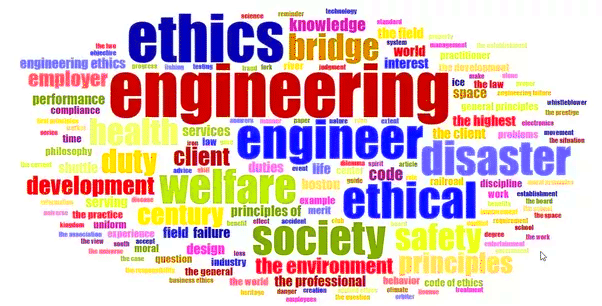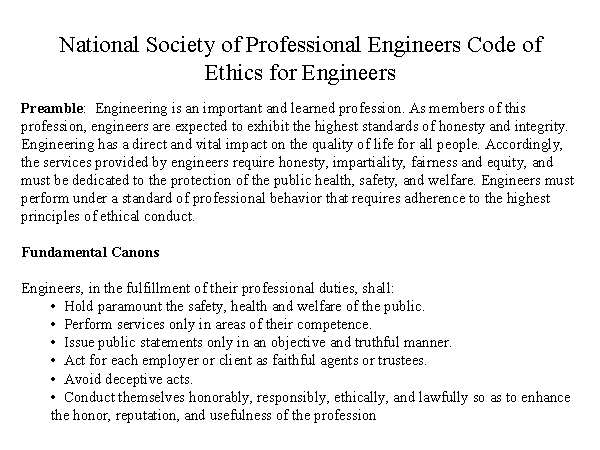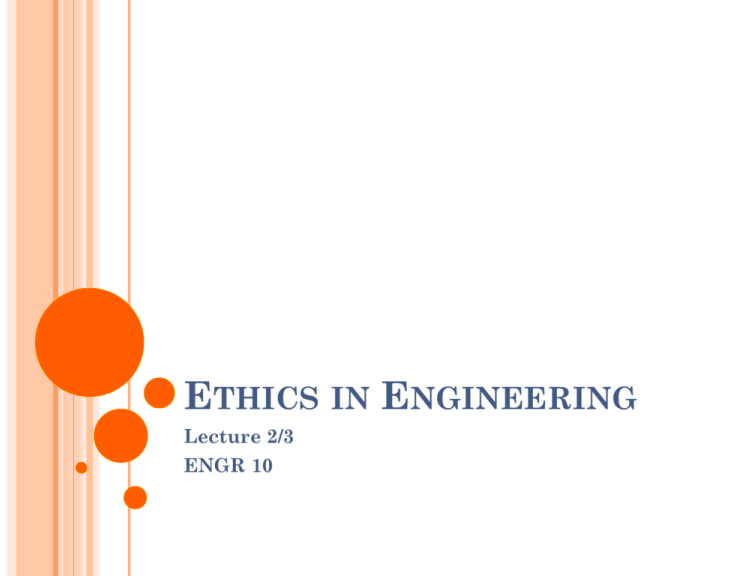Ethical Guidelines for Engineers Under New York Law
Ethical guidelines are crucial for engineers, especially in a complex legal environment like New York. These guidelines help maintain public trust and ensure that engineering practices are conducted with integrity. Engineers must navigate various ethical dilemmas throughout their careers, making a solid understanding of these guidelines essential for successful practice.
Overview of New York Engineering Laws

New York has specific laws governing the engineering profession to protect public safety and welfare. These laws include:
- Education and Licensing: Engineers must have a degree from an accredited program and pass the Fundamentals of Engineering exam.
- Professional Conduct: The New York State Board for Engineering and Land Surveying enforces standards for professional behavior.
- Continuing Education: Engineers must complete ongoing education to keep their skills updated and maintain their licenses.
Understanding these laws helps engineers comply with regulations and avoid legal pitfalls. Furthermore, these laws often reference ethical standards, emphasizing the importance of ethical conduct in engineering practice.
Importance of Ethics in Engineering Practice

Ethics in engineering is not just about following laws; it’s about doing what is right. Here are some reasons why ethics are essential:
- Public Safety: Ethical engineers prioritize the safety and welfare of the public in all their projects.
- Trust and Credibility: Upholding ethical standards builds trust with clients, colleagues, and the community.
- Professional Reputation: Ethical behavior enhances an engineer’s reputation, leading to more opportunities and career advancement.
In addition, ethical lapses can lead to serious consequences, including:
| Consequence | Description |
|---|---|
| Legal Action | Engineers may face lawsuits or loss of licenses for unethical behavior. |
| Public Harm | Negligence can result in unsafe structures or systems, putting lives at risk. |
| Professional Isolation | Colleagues may avoid working with engineers known for unethical practices. |
Thus, understanding and adhering to ethical guidelines is not just a legal requirement but a fundamental aspect of being a responsible engineer.
Key Ethical Principles for Engineers

Understanding key ethical principles is essential for engineers to navigate their professional responsibilities. These principles guide decision-making and promote ethical behavior in the engineering field. Here are some core ethical principles:
- Integrity: Engineers must be honest and transparent in their work, providing accurate information to clients and stakeholders.
- Competence: Professionals should only work within their areas of expertise and continually seek to improve their skills and knowledge.
- Confidentiality: Engineers must respect the confidentiality of client information and not disclose sensitive data without permission.
- Fairness: Treating all clients, colleagues, and competitors with respect and fairness is vital for maintaining a professional environment.
- Accountability: Engineers should take responsibility for their actions and decisions, ensuring they meet both legal and ethical standards.
By adhering to these principles, engineers can foster trust and respect within the community while delivering safe and effective solutions. Ethical principles also help in decision-making during challenging situations, ensuring engineers act in the best interest of the public and their profession.
Regulatory Bodies and Their Role
Several regulatory bodies oversee the engineering profession in New York. These organizations set standards and enforce laws to ensure that engineers adhere to ethical practices. Key regulatory bodies include:
- New York State Board for Engineering and Land Surveying: This board regulates the licensing of engineers and enforces professional conduct standards.
- National Society of Professional Engineers (NSPE): NSPE promotes ethical practices and provides resources for engineers to maintain high standards.
- American Society of Civil Engineers (ASCE): ASCE has a code of ethics specifically for civil engineers, addressing issues like public safety and environmental stewardship.
These organizations offer guidance, support, and resources to engineers, ensuring they remain informed about best practices and legal requirements. By following the recommendations and guidelines set forth by these regulatory bodies, engineers can enhance their professional reputation and ensure compliance with ethical standards.
Consequences of Ethical Violations
Violating ethical standards can lead to severe consequences for engineers, impacting both their careers and public safety. Here are some possible repercussions:
- Legal Penalties: Engineers found guilty of unethical practices may face fines, lawsuits, or even criminal charges.
- Loss of License: Regulatory bodies can revoke or suspend an engineer’s license, preventing them from practicing professionally.
- Reputation Damage: Ethical violations can lead to a loss of trust from clients and colleagues, harming an engineer’s professional reputation.
- Employment Consequences: Engineers may lose their jobs or have difficulty finding new employment if they are known for unethical behavior.
To illustrate the seriousness of these consequences, consider the following table:
| Type of Violation | Possible Consequences |
|---|---|
| Negligence | Legal action and potential lawsuits from affected parties. |
| Fraud | Criminal charges and loss of professional license. |
| Confidentiality Breach | Loss of client trust and potential legal ramifications. |
Ultimately, engineers must prioritize ethical behavior to protect their careers and the well-being of the public they serve. The potential consequences of unethical actions serve as a reminder of the importance of adhering to established ethical standards.
Case Studies Illustrating Ethical Issues
Examining case studies helps us understand the real-world implications of ethical issues in engineering. These examples highlight how ethical dilemmas can arise and the consequences of decisions made. Here are two notable case studies:
- The Hyatt Regency Walkway Collapse (1981): In this tragic incident, the walkways in a hotel collapsed, killing 114 people. An investigation revealed that engineers overlooked critical design flaws. This case emphasizes the importance of integrity and accountability in engineering practice.
- The Challenger Space Shuttle Disaster (1986): Before the launch, engineers raised concerns about the O-rings in cold weather. However, management decided to proceed, resulting in the shuttle’s explosion shortly after takeoff. This case illustrates the dire consequences of ignoring ethical obligations to prioritize safety.
These case studies serve as a reminder of the responsibility engineers have to the public. They emphasize the importance of adhering to ethical guidelines, conducting thorough assessments, and valuing transparency in decision-making. Learning from past mistakes can help prevent future tragedies and promote a culture of ethical practice in engineering.
Frequently Asked Questions
Here are some common questions about ethical guidelines for engineers:
- What are ethical guidelines? Ethical guidelines are principles that help engineers make decisions based on integrity, responsibility, and fairness in their professional practice.
- Why are ethics important in engineering? Ethics ensure the safety and welfare of the public, build trust with clients, and enhance the professional reputation of engineers.
- How can engineers stay updated on ethical standards? Engineers can participate in continuing education, join professional organizations, and engage with regulatory bodies to stay informed about ethical practices.
- What happens if an engineer violates ethical guidelines? Violations can lead to legal consequences, loss of licensure, and damage to professional reputation.
Conclusion on Ethical Guidelines for Engineers
In conclusion, ethical guidelines are vital for engineers to navigate their professional responsibilities and protect public safety. By understanding and adhering to these guidelines, engineers can make informed decisions, foster trust, and enhance their careers. Key principles such as integrity, competence, and accountability should be at the forefront of every engineer’s practice.
Regulatory bodies play an essential role in enforcing these guidelines and supporting engineers in their professional journey. Additionally, learning from case studies of ethical issues helps highlight the importance of these standards in preventing mistakes that can have serious consequences.
Ultimately, a commitment to ethics not only benefits individual engineers but also strengthens the entire profession. By prioritizing ethical behavior, engineers contribute to a safer, more trustworthy society.
